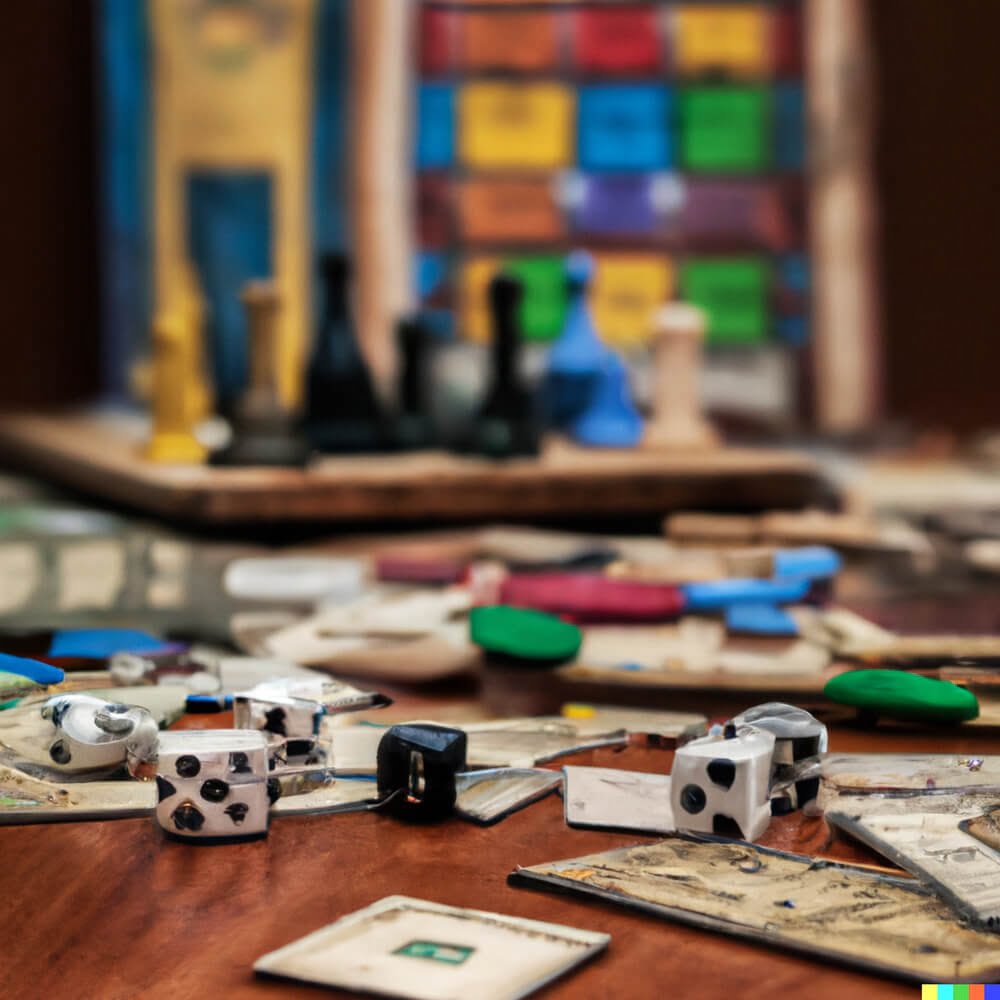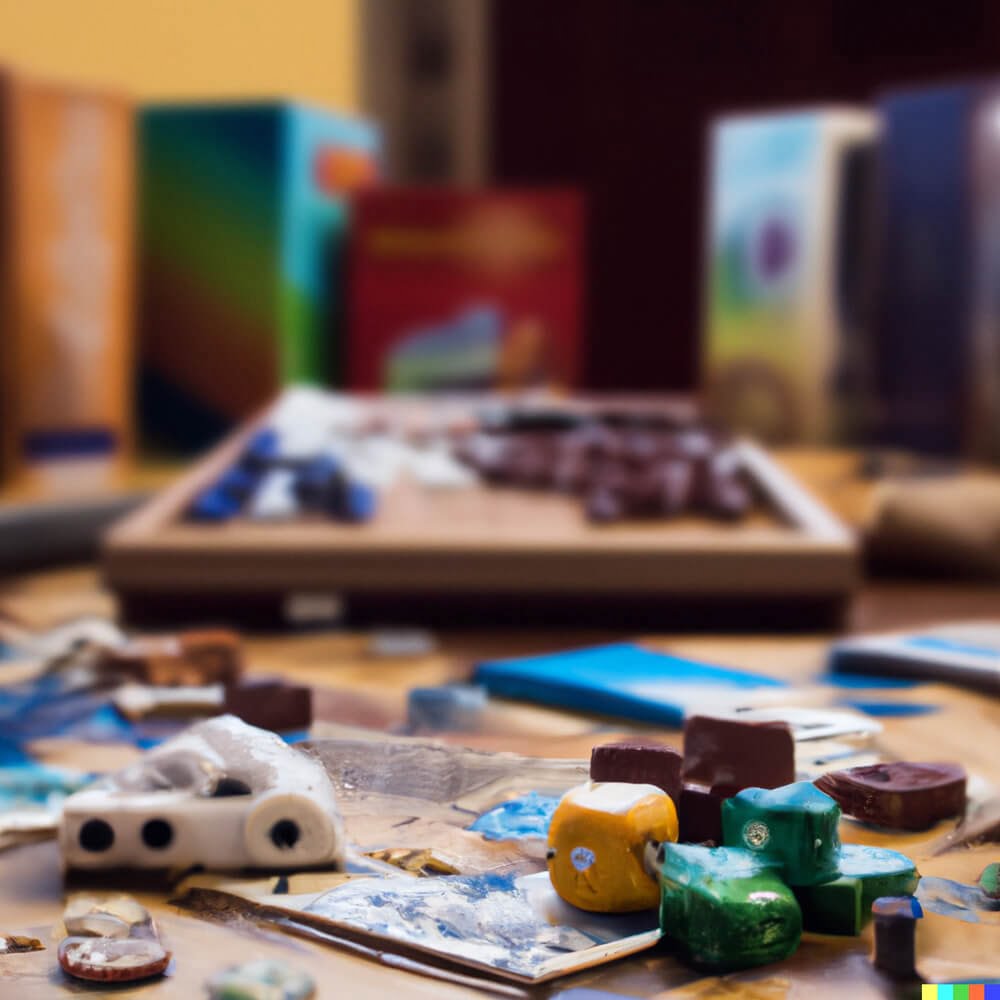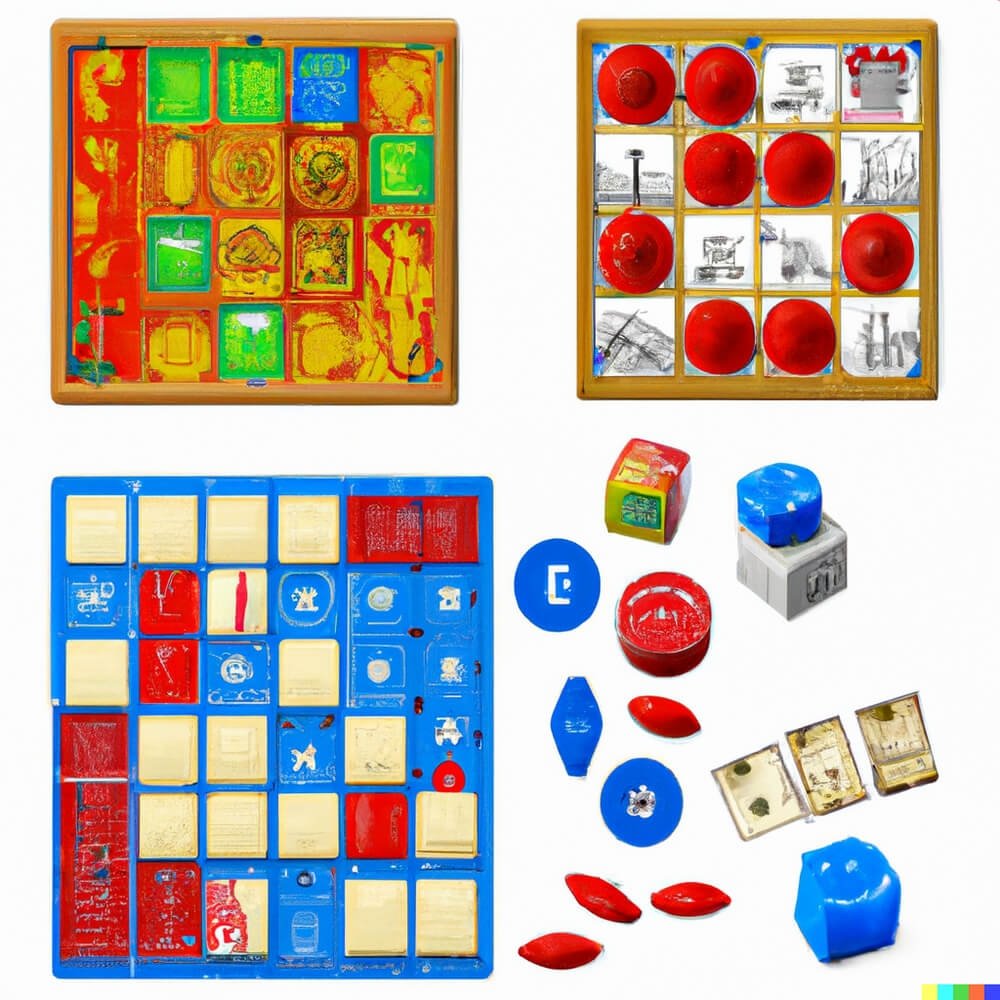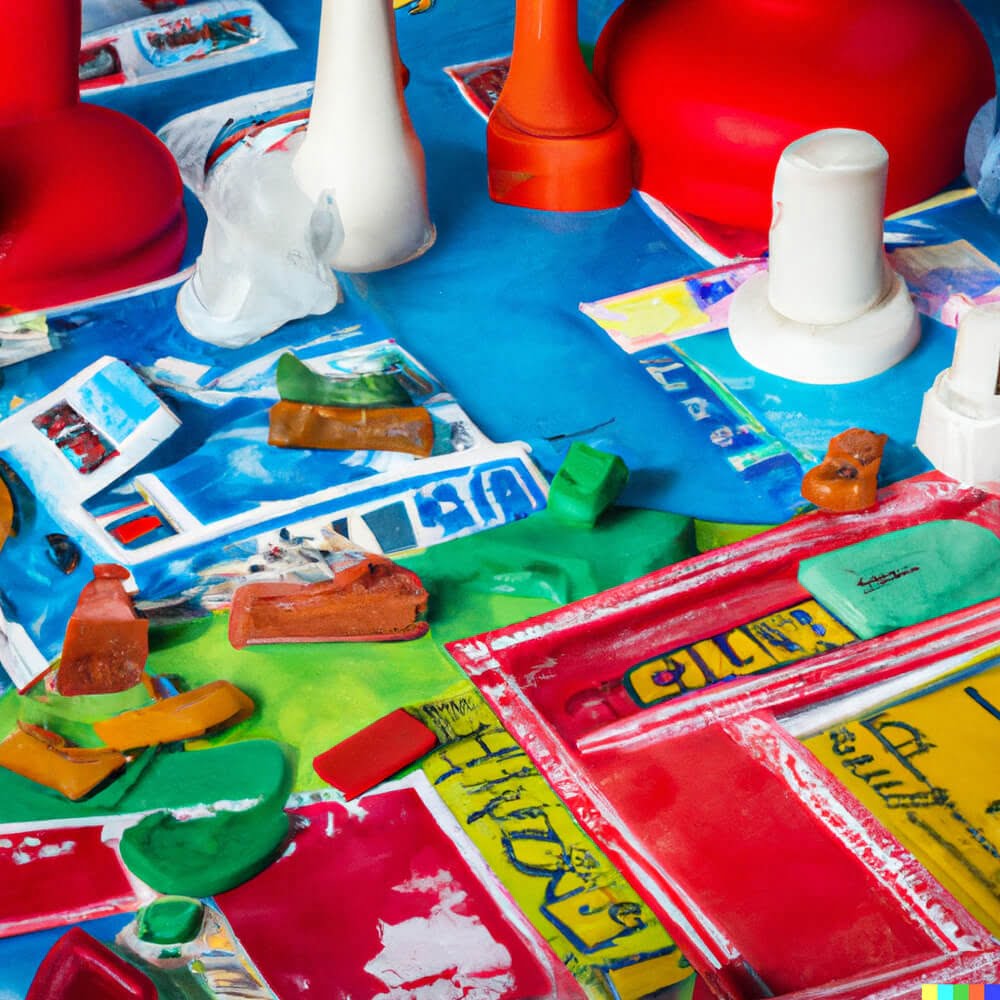
Playing board games has been a popular pastime for many. In fact, there is evidence of them being around as far back as 3500 BCE in India. Although much has changed with how they are created and played since then, the benefits of playing them have remained the same.
Board games can help players to hone their critical thinking skills, develop better problem-solving abilities, improve social interaction, and stimulate creativity. With so many types of board games available these days, it can be confusing to know where to start if you want to learn how to play a few popular ones.
Instructions: How To Play Chess A strategy game played by two people using black and white pieces placed on the sixty-four squares of a chessboard, chess is perhaps one of the most popular board games out there. To set up the board correctly, each player will need 32 pieces – 16 light and 16 dark.
The objective is to checkmate your opponent’s King by moving these pieces around strategically in ways that block or capture rival pieces while simultaneously protecting your own from capture. Once players understand what moves are available for each piece type – king, queen, bishop, knight, rook and pawns – they can begin learning strategies for checkmating their opponent.
Instructions: How To Play Monopoly Monopoly is another classic tabletop game that has been enjoyed by generations of people around the world. It is a game that involves acquiring property, building up your fortune and working toward bankruptcy of opponents while attempting to stay afloat yourself. Each player starts with $1500 dollars – which includes two 500 dollar bills each – and uses this money to purchase properties on the board.
Whenever an opposing player lands on a property already owned by you they must pay an appropriate rent amount in order to stay in the game longer. In essence this means wheeling and dealing must be made in order for all parties involved to stay ahead financially and avoid having all of their assets taken away.
How to Choose the Right Board Game
Before you start playing any popular board game, it is essential to first determine the game that best suits your needs and interests. Depending on who is playing, a game should be chosen based on their skills and age group. Each type of game offers unique qualities and it’s important to know which ones will provide the most enjoyable experience.
Different Types of Board Games
There are numerous board games available on the market including strategy games, card games, dice games, educational board games, and classic board kames like Monopoly or Life.
Strategy Games: These are the types of board games where players have to make decisions on how they move pieces around the board in order to block or capture their opponent’s pieces. Popular strategy games include Risk and Settlers of Catan.
Card Games: Card-based board games involve players using decks of specially designed cards with various instructions printed on them. There are tons of different card based-board game types from trading card games such as Magic The Gathering, to more classic style party type card games such as Uno.
Dice Games: Dice-based board games involve rolling dice in order to determine a player’s direction and/or how many moves they can make during a turn. Popular dice-based boardsgames include Yahtzee and Backgammon.
Things To Consider Before Playing
Every type of board game offers its own unique set or rules, pieces, tactics, strategies etc., so ensure all players are aware beforehand what type of game they are getting into before proceeding further. Here is a list summarizing some key factors you need to consider before playing:
- Creativity – does the game require creative thinking?
- Teamwork – Is cooperation needed between players?
- Objective Based – Does the game require objectives to be completed?
- Competition Level – How competitive is the required playstyle?
- Luck Factor – Does luck play an important role in the outcome of the game?
Set-up Basics
When playing most popular board games it is important to be adequately prepared in order to have the best game experience. One way to ensure you get the most enjoyment out of a board game is by understanding and properly executing all the instructions before you begin to play.
Getting set-up correctly often means reading all available instructions, manuals or directions so that everyone involved understands the rules of the game, the type of equipment required for play, as well as what pieces and/or items need to be placed on the board.
The following is a list of steps that one should take in order to facilitate proper preparation:
- Read any instruction manual.
- Remove pieces from their packaging.
- Familiarize yourself with all pieces and components.
- Place appropriate amounts of each piece strategically on the board according to directons.
Bearing these essential steps in mind while preparing for board games can help contribute towards getting through this important aspect quickly and easily. However, if anyone has problems grasping a particular concept or takes more time than necessary during set-up, do not hesitate to reach out and ask questions if there are other players involved who may be familiar with these types of products and/or looking for guidance.
Additionally, once components have been laid out is it recommended that practice rounds should also be completed first if it is found that all players may need/desire extra time acclimatizing themselves with a new game or becoming familiarized with any nuances associated with it. This would provide an opportunity for any remaining questions on play style or any other discrepancies related to the setup process could also be addressed as well so everyone understand precisely how best move forward.
Playing the Game
Playing popular board games is a great way to spend time with family and friends. Not only are board games fun, but they can also help develop cognitive skills and inspire creativity. But before you start playing a game, it is important that players understand the rules and objectives of the game.
First get everyone together as the number of players will determine which type of games are available to play. Commonly two to four players take part in mostboard games – although some may be designed for up to eight or ten people – so make sure you’ve got enough folks who want to join.
Once the group has gathered around a table, go through the instructions one by one until everyone understands how the game is played. It’s worth taking the time to read them carefully because some of these rules can become complex and understanding them from the outset will prevent long debates later on. Generally, each player must know:
- What their goal is
- How turns work
- What pieces represent
- When they win or lose
When going through these basics, it’s also important for each individual to comply with any specifications laid out by the manufacturer, such as age limits, difficulty level or duration of a turn. Following all these directions helps ensure all players have an engaging experience from beginning to finish. If necessary each step should be reviewed again until everyone feels comfortable with them.
After reading through instructions thoroughly it’s time to begin set up. Determine who goes first; consider a die roll if there are multiple eligible participants playing in order make it fair for everyone involved. Ensure all pieces are laid out according to rule books; many modern titles have detailed diagrams showcasing how layout should look at start of play.
Shuffle any cards needed then divide equitably among those present. Make sure there’s enough space on table for amenities and tokens as well; this lessens clutter when playing and speeds up flow of game considerably over weeks-long sessions.
Develop Winning Strategies
Playing board games can be a great way of fostering communication, critical thinking and strategy. This can make playing board games an enjoyable pastime for many people. But how can you ensure that you come out on top of your opponent? Here are some tips to bear in mind when honing your skills in your favorite board game.
One important factor when playing is to always keep the end-game in mind. Whether you are playing mahjong, chess or even Monopoly, it is important to plan ahead and map out the strategic route towards victory. Consider what you may need or want further down the line and try to incorporate these elements into your moves from earlier on in the game, so that they are accrued over time.
Another key aspect is understanding your opponents’ strategies as well as any subsequent weaknesses which could be called upon later on during the match. There will often be tell-tale signs of psychological ploy which could indicate someone’s intentions before they have actually had the opportunity to act them out in full. Being mindful of this can give players an advantage against their opposition – maybe even before they know it themselves.
The final – and perhaps most important – tip is never give up. Board games will often require endurance, patience and resilience, and those who persevere until the end usually stand a good chance of ultimately claiming victory.
Although easy to forget at times amidst a more immediate concern such as wanting to win quickly, remember there is usually no magic formula for success; rather a combination of perseverance through already established strategies combined with instinctive decisions along the way can yield very successful results.
Having Fun
Creating a relaxed and enjoyable atmosphere when playing board games can be an effective way to encourage bonding between friends and family. While the games can provide some entertainment, putting effort into creating a cheerful atmosphere can make the experience even more memorable. Some tips to keep in mind include:
Be Respectful
It is important to maintain mutual respect during any game. Working towards sportsmanship rather than rivalry is vital for everyone to enjoy themselves. Rejoice in each others’ successes, refrain from gloating in your own, and always treat each other with fairness and respect. Even if you’re playing a competitive game like Monopoly, it is still beneficial to remain humble and respectful when winning or losing.
Be Patient
Having patience when teaching new players or with those playing more slowly can also help create an enjoyable experience. Frustration when one person is not aware of all the rules puts unnecessary pressure on others and does little towards fun. Instead, politely explain how certain pieces move or repeat any rules as many times as necessary while still making sure that everyone is enjoying themselves.
Transparent Communication
Finally, transparent communication should be encouraged – especially between adults and children – throughout the entire gaming process for everyone to feel involved and respected. Letting younger players make decisions in their favour or informing them about why you would make a certain move helps increase understanding while keeping them informed. This allows them to acquire knowledge about the game itself while boosting their confidence as well.
Exploring the Vast World of Board Games
In recent times, the popularity of board games has grown significantly. From ancient classics like Mahjong and Chess to newfangled games such as The Settlers of Catan and Exploding Kittens, these games offer a great way to spend quality time with family and friends. Board games come in various genres, each offering its own type of challenge and gameplay. Here we explore some of the popular genres of board games.
Strategy Games
These are games which require players to plan ahead in order to achieve success. Games such as chess, checkers and go require careful planning in order to discover winning strategies – making them ideal for gamers who enjoy deep thinking and problem-solving. Such games can be enjoyed by all ages, ranging from small children to adults.
Cooperative Games
In cooperative games all players must work together in order win the game together as a team – this usually involves cooperation, strategy building and critical thinking on the part of each player. A good example is Pandemic – where players are tasked with stopping an outbreak of various diseases before they spread across the globe.
Card Games
Card games rely heavily on luck but also require a certain degree of strategic thinking – particularly when it comes to bluffing out opponents. Games such as Poker offer complex challenges requiring skillful negotiation while Gin Rummy requires mastery over techniques like melding and discarding cards efficiently. Some card games even involve harsh punishment for those who break rules. Uno is a classic example – where offending players have to pick up a hefty stack of cards for penalty.
Conclusion
Playing board games has been a popular pastime for centuries, but its popularity is on the rise in modern times as a way to connect with family and friends in person. Whether it’s the excitement of a strategy game or the joy of gathering around a game that everyone knows how to play, board games have earned their spot as some of the most enjoyable ways of creating deep social connections.
They are a reminder of our common bond as humans, regardless of differences in age or culture.
Board games also offer an opportunity for relationship building and strengthening. From children learning to count and recognize numbers through classic counting games like Monopoly to adults discussing various strategies together for winning Pandemic Legacy, playing board games can bring people closer while offering basic life lessons such as cooperation and negotiation skills. There are even cooperative board games that require teams working together towards a common goal-a great start to build relationships between players.
Finally, unlike video games, where players sit side-by-side without interacting unless text-chatting with each other in certain titles, playing board games fosters true face-to-face communication and social interaction. This develops better empathy towards different opinions and allows for actual problem solving within conflicts or difficult discussions. Even if players only stick to friendly competition for sport such as with Chess or Checkers it still offers an amazing opportunity for communication and forging meaningful relationships.
In conclusion, there are countless reasons why popular board games should be encouraged by parents, educators, coaches, youth workers, or anyone else interested in building strong interpersonal relations among people from all walks of life. By engaging people through board game events, conversations become more relaxed than structured ones less open for emotionally invested conversations-a key factor that promotes positive social development through curious inquiries and spirited debates instead of stale instructional tests.
Games not only provide a great source of entertainment but also an invaluable tool to make memories with family and friends alike.




